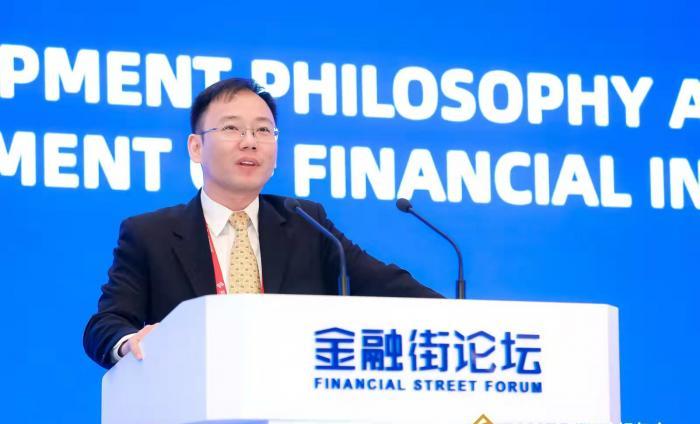21st Century Business Herald reporter Bian Wanli intern Luo Wenjun Beijing report On October 21, the 2021 Financial Street Annual Conference "Adhere to the New Development Concept and Promote the High-quality Development of Inclusive Finance" sub-forum, He Ping, head of the Department of Finance of the School of Economics and Management of Tsinghua University, said in a speech, "When it comes to financial inclusion, the first thing we need to think about is financial exclusion. ”

He Ping said that there are about 2 billion people in the world who do not have access to the services of traditional banks and financial companies, and financial exclusion is a phenomenon in which people are constrained in accessing mainstream financial services. At the same time, financial inclusion, proposed by the United Nations in 2005, refers to the provision of appropriate and effective financial services at affordable cost to all segments and groups of society in need of financial services. Among them, small and micro enterprises, farmers and urban low-income people are the key service targets.
Financial exclusion will hinder the development of inclusive finance to some extent. He Ping believes that from a macro level, the unequal returns of capital and labor will aggravate financial exclusion. The high return on capital will inevitably increase capital capital, and if capital needs higher returns, it will also push up the cost of funds on the micro supply side. "For low-income people or small business entrepreneurs, they don't have collateral or collateral such as assets. The low return on labor actually weakens the credit support of low-income people. ”
He Ping pointed out that from the demand side, low-income people face serious problems of moral hazard and information asymmetry. "Low-income people, small and micro enterprises lack the necessary credit endorsement, guarantee and mortgage, so labor income is his only credit support." But financially speaking, labor income is difficult to become an effective financing guarantee. "From the supply side, the scale of financial services serving small and micro enterprises and low-income people is relatively small, and there is no scale effect, and the benefits cannot cover the cost."
According to him, many countries have addressed supply-side information asymmetry and moral hazard in inclusive finance through acquaintances or employment relationships. From the perspective of risk identification, the "community bank" proposed by the American Community Bank is to use interpersonal relationships to solve the problem of information asymmetry. The Japan Agricultural Synergy Group proposes a model for farmers to take shares, in fact, by forming a "community of economic interests" to reduce moral hazard. The Village Bank of Bengal adopts the model of a loan group, with members supervising each other. "These ideas can become a reference for us to continue to develop inclusive finance in the future," He Ping said.
From a macro perspective, He Ping put forward his own views on controlling financial exclusion from the source. "The existence of public capital actually helps to enhance social equity, so the proportion of public capital determines the balance of efficiency and fairness," he said, adding that public-private partnerships can leverage more private capital to engage in inclusive finance and give full play to the allocation efficiency of private capital. At the same time, public capital, because of its public welfare, can reduce the overall cost of funds, and there is no need to artificially reduce the return of private capital and ensure sufficient incentives for private capital.
In his view, relying solely on market behavior can not solve the deep-seated contradictions caused by inclusive finance or financial exclusion, if only private capital makes long-term profits, and public capital cannot profit, it may also be unsustainable, so the sustainability of public capital can be guaranteed through means such as three distributions, including taxes and other means. This is the most fundamental way of thinking and direction for overcoming financial exclusion in the future. He further concluded that the profit-seeking nature of capital itself brings financial exclusion and exacerbates social injustice. We must give private capital sufficient incentives to address the efficiency of financial inclusion, but the participation of public capital is the key to the participation of private capital in financial inclusion.
For more information, please download the 21 Finance APP